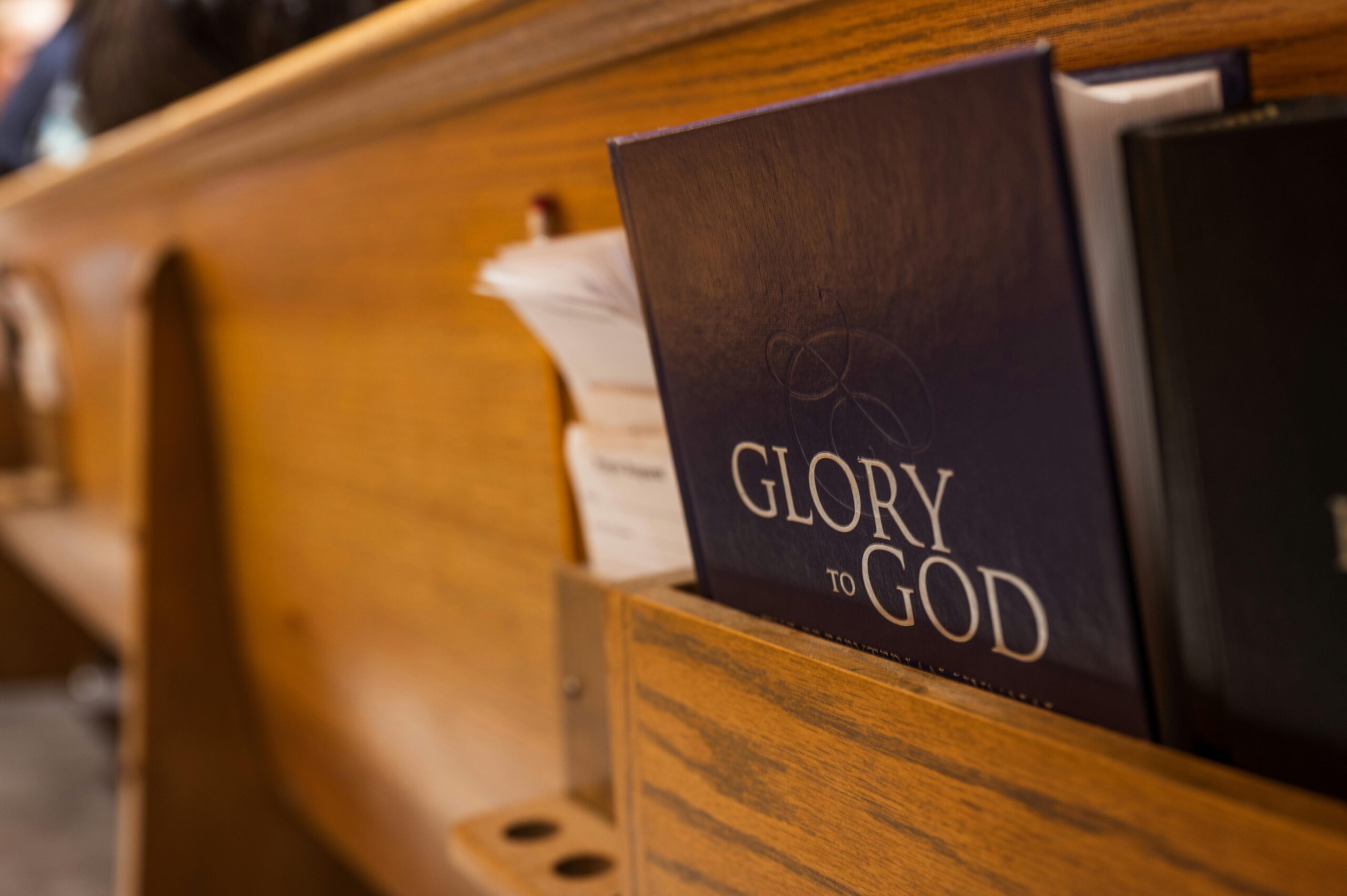June 24, 2025
If Aslan Is Shaking His Mane Again, Why Not Enjoy the Feast?

There’s that memorable scene in The Last Battle in which the unbelieving Dwarfs faced with a feast, offered through the generosity of Aslan, refuse the taste of grace spread before them.
As they sit before a banquet, all of their implacable, blind unbelief renders the meal tasteless:
They began eating and drinking greedily enough, but it was clear that they couldn’t taste it properly. They thought they were eating and drinking only the sort of things you might find in a Stable. One said he was trying to eat hay and another said he had got a bit of an old turnip and a third said he’d found a raw cabbage leaf. And they raised golden goblets of rich red wine to their lips and said “Ugh! Fancy drinking dirty water out of a trough that a donkey’s been at! Never thought we’d come to this.”
It’s a sad indictment of those who refuse to taste and see that the Lord is good. God invites us to the marriage supper of the Lamb (the culmination of many a feast invitation in the Scriptures that celebrate the bountiful goodness of the King) and we would be churlish to refuse. But churlish we are!
So having said that, in light of the fact that it appears there are more than a few Dwarfs – so to speak – in the Western world who are starting to taste something of God’s goodness after years of the acrid bitterness of modernity has scorched their tastebuds. And I write this having just read this article in The Guardian by Lamorna Ash: Could I become a Christian in a year?
And it would be churlish of those of us who have been at the table the whole time to refute the fact that something is happening that tastes fairly sweet. The article’s author who wrote a book about her experience of two totally non-Christian friends – comedians as it happens (the very group least likely to be suckered in by either cant or sobriety) become Christian in quick succession – observes:

Very quickly, I discovered the two young comedians were not outliers when it comes to my generation’s relationship to faith in Britain. Not only did I meet a host of people in their 20s and 30s who have converted to some form of Christianity, but I also detected a marked attitudinal shift in how my peers talk about religion compared with the generations that came before us.
We are leagues away from the New Atheist movement of the 1990s, which repudiated religion on supposedly intellectual grounds – though the straw-man version of religion Richard Dawkins and his ilk chose to burn down was the most pallid, simplistic form they could devise. Our feelings about faith are distinct, too, from the broad strokes of apathy or indifference towards belief that often characterised the 2000s.
I quote her, and I say all of this, in light of the concern among some Christians that there’s way too much excitement around the talk of revival in the West. The Quiet Revival may be a thing. It might not! Asbury may have been a harbinger. But can we really trust it? Church going is a thing again? Yes, but which church and is it one of ours?
Okay I get it, I get it. I sense the caution that is borne either from a temperament or a theology. But could we just not go with it a little and see what happens? We’ve spent so long pitching a narrative of decline in the church (Bad Guys anyone?) that it would take a clunky gear change to bring us round to anything approaching optimism.
And I get too that what we are seeing might be a spiritual tsunami of crazy superstition that simply fills the void left by the loss of orthodox faith. But still…
But still,, little trickles of water run into rivulets run into streams run into rivers run into oceans. Or to put it another way, mustard seeds start off really, really small!
The real risk is that we could end up – ironically – being the emotionally shrivelled Dwarfs of The Last Battle, who, having refused to mourn in the market square when the funeral pipe is played, are also refusing to dance now that the piano accordion and castanets are striking up.
It’s certainly a sense of not shooting until we see the whites of their eyes. We don’t want to be too optimistic after so many years in which the Christian ice-floe got smaller and smaller, and we Christian polar bears were a bit too squeezed for comfort.
But for heaven’s sake, – and I mean for heaven’s – can we just loosen up a little and lean into some of the joy of the stories that we read and hear? I have lost count of the number of people in ministry who have said, you know what, we’re seeing something surprising – people coming “cold” to church!
Of course, they are not coming “cold” as it can only be the work of the Spirit in someone’s life that draws them to even consider the gospel. There is a prevenient work going on. That’s the point of God’s compelling drawing of people surely. Once I was blind, but now…and all that.
So if you tend towards caution, then its worth realising that the trickle returning upends a whole weight of cultural hostility, not to mention a truckload of books by eminent and scornful atheists about how Christian faith is both ugly and tasteless, as opposed to beautiful and sweet.
None of the conditions have been perfect in the West for some time. If by “perfect” you mean that we have the levers of control, and a place at the head of the table. But if by “perfect” you mean broken/weak/needy/falling on our faces before God/dead and in need of a resurrection, then perhaps that’s when God is going to do His best work.
And just like with Gideon, God is looking for a situation in which a mere 300 soldiers without a whole load of ministry weapons of this world could do the work that would give Him – and Him alone – all the glory. I mean that’s the problem in the first place is it not?
The Bible continually tells us that the ultimate sin is refusing to give God the glory due to his name and to assume that our strength won us the day. We would hate for that to be us. But not more than God would hate that to be us.
I stil recall – and re-quote – Tim Keller’s quote from his article in The Atlantic before he died, that the church in the US (and across the West?) was due for revival:
There was no such thing as monasticism—through which pagan Northern Europe was turned Christian—until there was. There was no Reformation until there was. There was no revival that turned Methodists and Baptists into culturally dominant forces in the midwestern and south-eastern United States—until there was. Christianity, like its founder, does not go from strength to strength but from death to resurrection.
Gospel food will taste like straw and cabbage leaves in the mouths of those shrivelled by the culture. Until it doesn’t. No one becomes a Christian until they do. Until what they would formally spew out of their mouths, suddenly tastes like the sweetest honey. Like honey from the rock even!
Don’t let a shrivelled imagination, or a shrivelled hope, stop you from enjoying the newly invited guests to the feast. Make sure there is room at the table for even the one or two that land at your doorstep. And even after that, go find and put out a few extra chairs around that table just in case that one or two ends up a small tribe.
Written by
There is no guarantee that Jesus will return in our desired timeframe. Yet we have no reason to be anxious, because even if the timeframe is not guaranteed, the outcome is! We don’t have to waste energy being anxious; we can put it to better use.
Stephen McAlpine – futureproof
Stay in the know
Receive content updates, new blog articles and upcoming events all to your inbox.


